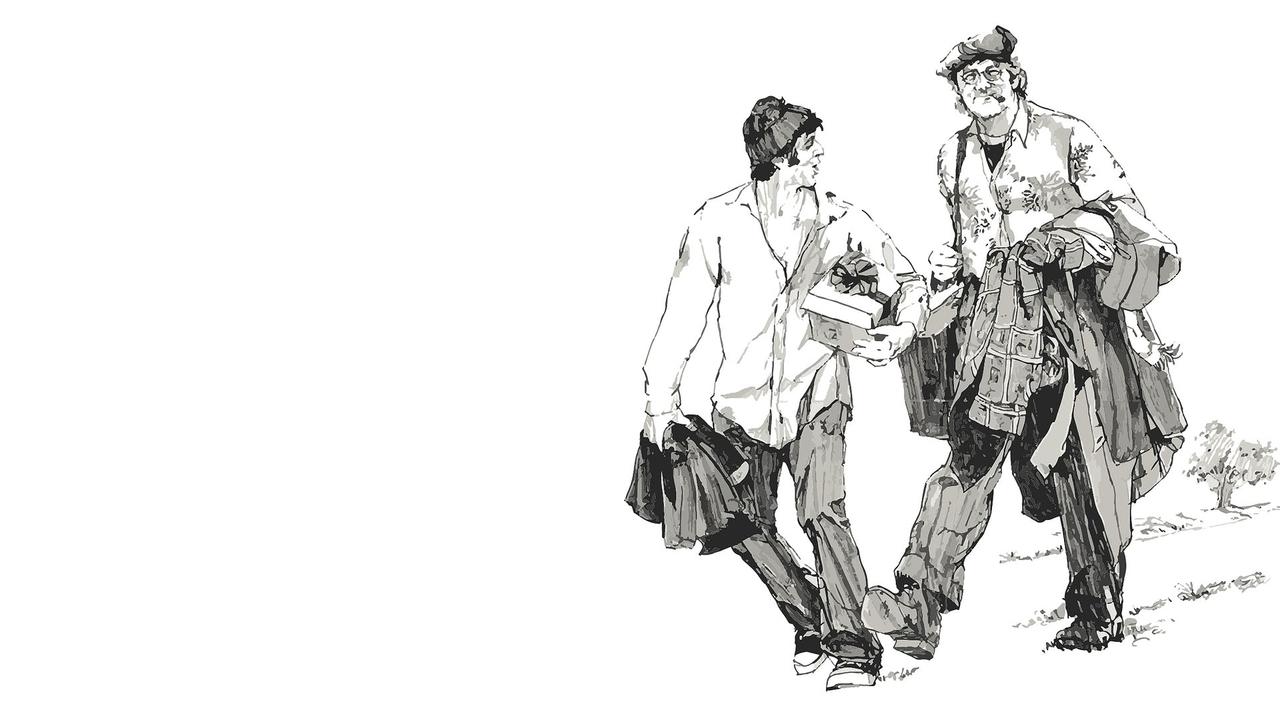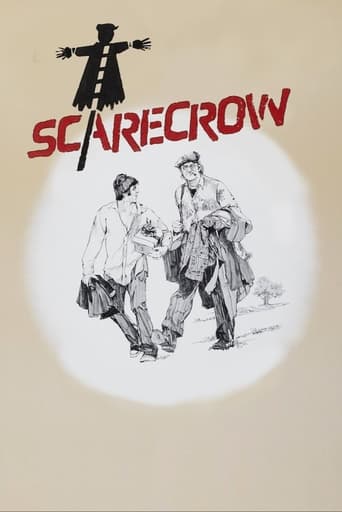

Some American directors have always been admired more outside the borders of USA. They include genuine 'auteurs' such as Martin Scorsese, David Lynch, Tim Burton, Spike Lee, Stanley Kubrick, Samuel Fuller, Paul Schrader and Jerry Schatzberg. All these people have made their mark in Europe too especially in France, the birthplace of cinema where their films are admired by both old and young alike. Jerry Schatzberg achieved considerable artistic success at Cannes in 1973 when Scarecrow won 'Grand Prix' jointly with 'The Hireling' directed by Alan Bridges. His film 'Scarecrow' can be classified as a road movie about two buddies whose contrasting personality traits transform them into adorable losers. It is an American film with a large amount of European cinema aesthetics. The unique thing about 'Scarecrow' is that it remains very faithful in its presentation of troubled times in which it is set. It is set in 1970s, a period of hopelessness for American people as due to the aftermath of recession, economic stagnation made the lives of ordinary Americans difficult. It is in such desolate times that two drifters Max and Francis strike up a very odd friendship. These roles are played with utmost perfection by Gene Hackman and Al Pacino. Lastly, Scarecrow will continue to influence a whole new generation of movie watchers as it is the first American film which dared to show that even tough guys are capable of cracking due to adverse situations in life.
... View MoreFittingly for a film awash in "Wizard of Oz" motifs, Jerry Schatzberg's "Scarecrow" opens on a yellow brick road. Max Millan's (Gene Hackman) on one side, Lionel "Lion" Delbuchi's (Al Pacino) on the other, but the gift of a "last match" sparks a friendship which draws both men together.Schatzberg then quickly sketches the personalities of both men. Max is an angry hothead who has just been released from prison and who harbours dreams of starting a business. Lion, in contrast, is a coward who resorts to comedic self depreciation in order to avoid conflict. Both men have severe avoidance complexes, resorting to cowardice or violence, action or inaction, as a means of combating a hostile post-War America. Like Jack Nicholson's "The King of Marvin Gardens" (1972), "Scarecrow" (1973) ultimately watches as two outcasts grapple with delusions, aspirations and an American Dream which exists only to betray."Scarecrow" takes the format of a road-movie, Lionel and Max embarking on a little cross country adventure. Their ultimate destination? Small-town Pittsburgh, where the duo hope to start a car-wash business. Along the way they stop off at Max's sister's home in Denver, and then visit Lionel's ex-lover in Detroit. Both visits point to wasted lives steeped in sadness and regret. Lionel and Max's contradictory personalities may act as a magnet which pulls each towards a "sensible" middle ground, but there are no happy endings here. Lionel ends up in a mental hospital and Max remains a vagabond, a climax which perhaps too similarly echoes that of "Midnight Cowboy" (1969). Last shot? Max hammering a shoe full of dirty cash on a counter, still hopeful, but no closer to his dreams. Gorgeously shot by master cinematographer Vilmos Zsigmound.8/10 – Minor classic. Worth one viewing.
... View MoreHaving already made two New Hollywood classics—'Puzzle of a Downfall Child' (1970) and 'The Panic in Needle Park' (1971)—Jerry Schatzberg delivered again with 'Scarecrow', a compelling road-buddy movie starring Gene Hackman as Max Millan and Al Pacino as Francis Lionel "Lion" Delbuchi. Millan and Delbuchi, both misfits, meet on a lonely California road while hitchhiking and subsequently become friends, would-be business partners, and traveling companions. Recently released from a six-year stretch in San Quentin, the paranoid and pugnacious Max plans to travel to Pittsburgh and open a car wash with earnings saved from prison labor. The mild-mannered Lion, an ex-sailor, counters the world's hostility by playing the fool and is dubbed "Scarecrow" by Max. While Max's ambitions are more or less pragmatic, Lion's motivations are essentially emotional; he has no other plans than to travel to Detroit to give his young child (whom he has never seen) a birthday present—and possibly reconcile with the wife he deserted five years before. After various adventures, including an idyllic interlude with Max's sister and a lady friend and a nightmarish stint in a Nevada work farm, Max and Lion make it to Detroit but Lion is rebuffed by his former wife and told (falsely) that the child she was pregnant with when he left died at birth. Unhinged by the news, Lion subsequently grabs a little boy off the street and proceeds to take him into a massive public fountain (actually Scott Fountain on Belle Isle in Detroit) for purposes that are not at all clear. In the ensuing chaos, Max rescues the boy but Lion falls into a catatonic state from which he will likely never recover. In the end, Max (the allegorical figure for Mind) has no choice but to leave the vegetative Lion (the allegorical figure for Heart) on a gurney in a Detroit psychiatric hospital and to continue on to Pittsburgh by himself. Thus, the film ends in male martyrdom and emotional sclerosis, suggesting that commitment to family is often impossible to sustain and, once abandoned, cannot be resuscitated. This is blamed on women: creatures who are unforgiving, mean, and treacherous; they destroy male homo-social idylls, forcing men to go it alone. Vilmos Zsigmond's gorgeous cinematography and the excellent performances rendered by two of the greatest actors of the modern era cannot obscure what is essentially a celebration of male self-pity. It won the Golden Palm at Cannes and other foreign awards but was a resounding commercial failure—simply too depressing for American tastes. VHS (1992); DVD (2005).
... View MoreGene Hackman and Al Pacino play two drifters(Max & Francis) who befriend each other, and decide to form a business partnership in Pittsburgh, where they hope to open a car wash. Film details their adventures along the way.Both actors are very good as usual, and being filmed on real road locations helps, but film, which feels very inspired by the far superior "Midnight Cowboy" never amounts to much, feels like an extended sketch study stretched to feature length. Hackman(Max) is a hot-tempered brawler, which gets them in frequent trouble, while Pacino(Francis) is a simple man who just wants to see his son again, but fate has other ideas. The ending is disappointing because it just stops, without any real emotional resolution. Nice try, but misses.
... View More